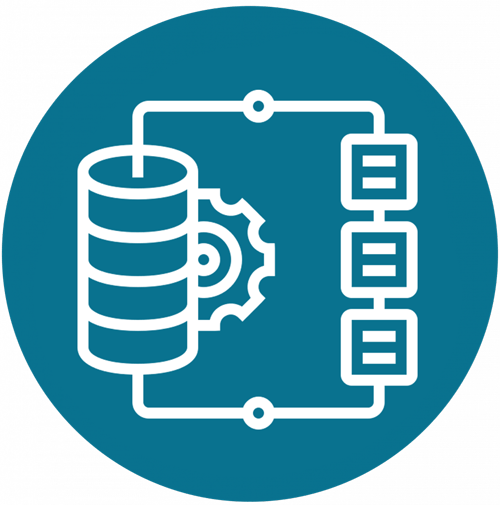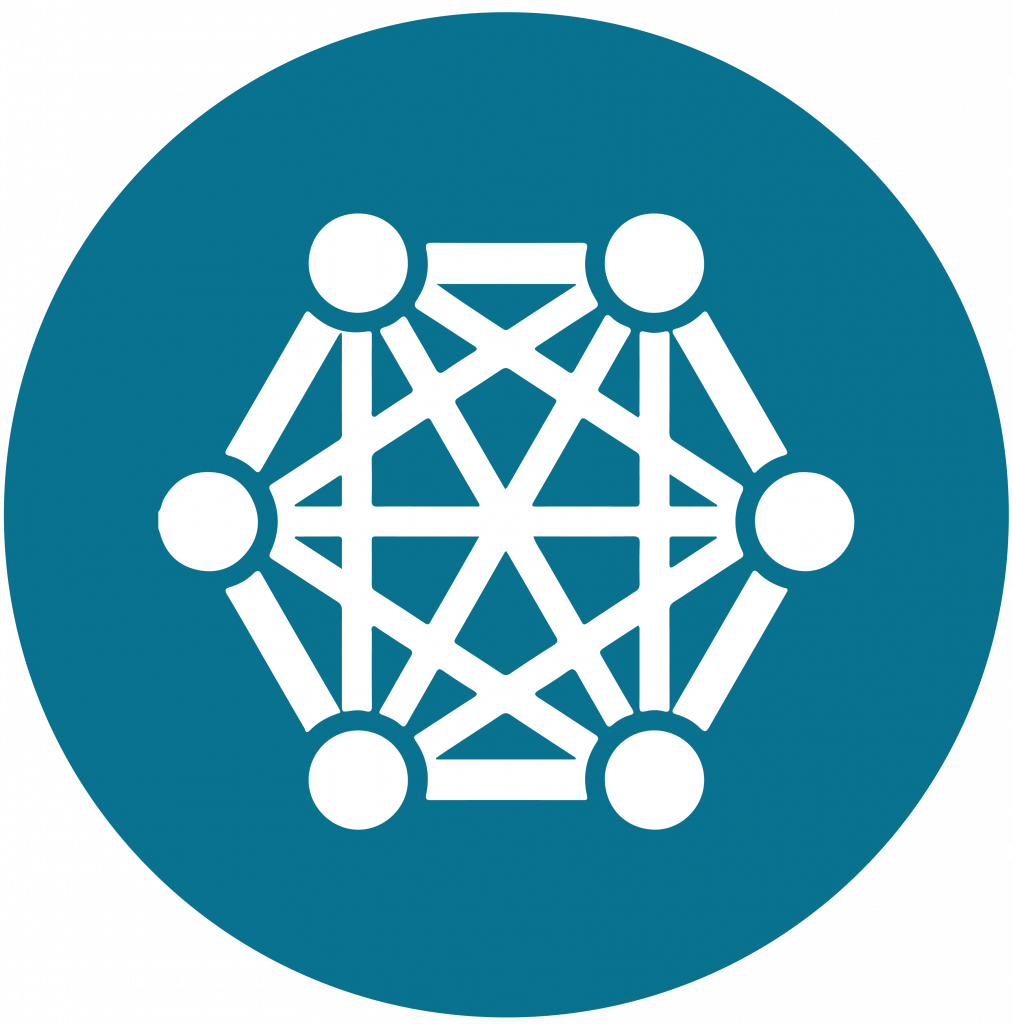In the current business scenario characterized by rapid transformations, organizations grapple with numerous obstacles in their everyday operations, working tirelessly to keep up with intricate supply chains and the ever-shifting expectations of their customers. Inefficient processes, disjointed systems, and a lack of real-time visibility often led to lost opportunities, increased costs, and decreased customer satisfaction.
Oracle, a global technology leader, recognizes the pressing need for businesses to achieve more with less and has unveiled a powerful arsenal of capabilities within its Oracle Fusion Cloud Applications Suite. These advancements are designed to empower customers with the ability to accelerate supply chain planning, enhance operational efficiency, and achieve greater financial accuracy.

Here’s What You Will Learn in This Blog
Let’s explore the realm of Oracle Fusion Applications and discover how customers can unlock a world of transformative possibilities and propel their businesses into a future of sustained growth and innovation.
What is Oracle Fusion Applications?
Oracle Fusion Applications is a collection of business applications that utilizes the latest technology and incorporates the most effective strategies learned from Oracle’s customers. It sets a new standard for how businesses innovate, operate, and embrace technology. Customers have the flexibility to choose which modules or suite of applications they want to implement, gaining access to all the advancements provided by Oracle Fusion Applications. It is characterized by its foundation on open standards providing a flexible and adaptable solution, established business processes, diverse deployment options, and a strong emphasis on security. Oracle Fusion Applications stands out by incorporating best practice business processes from various Oracle product lines, including Oracle E-Business Suite, PeopleSoft, Oracle On Demand, JD Edwards, and Siebel. This integration serves to optimize the user experience and boost productivity significantly.
The user interface of Oracle Fusion Applications is designed with the end user in mind, promoting an intuitive and customer-driven experience.
What are the Implementations of Oracle Fusion Applications?
Oracle Fusion App offers a suite of applications and infrastructure platforms that can help organizations unlock their full potential and leverage the latest advancements in cloud technology. The applications are employed in a multitude of ways, encompassing diverse functionalities such as supply chain management, product configuration and management, business process management, financial management, governance, risk, and compliance (GRC), as well as human capital management (HCM), supply chain management (SCM) and Project Portfolio Management (PPM).
What are deployment options?
Oracle Fusion Applications offer various deployment options, allowing organizations to choose the approach that aligns most closely with their specific needs and preferences. The on-premise option provides maximum control over infrastructure but requires extensive in-house management. Conversely, the public cloud as a software-as-a-service (SaaS) solution delivers rapid scalability and cost-efficiency without the burden of infrastructure management. For those valuing the security of a private environment, Fusion Applications can be deployed in a private cloud, preserving control while harnessing the benefits of cloud technology. The hybrid deployment model combines the best of both worlds, enabling organizations to mix on-premise and cloud-based solutions to optimize cost, control, and scalability. This flexibility underscores Oracle Fusion Applications’ commitment to catering to the diverse requirements of modern businesses, ensuring that each organization can choose the deployment strategy that suits its unique operational goals and constraints.
Latest Additions and Enhancements in Oracle Fusion Applications
Oracle has implemented various advancements in its AI and automation features to enhance supply chain management and boost overall efficiency. Here are the key highlights:
1. AI-driven Estimation of Lead Times: Oracle’s Supply Chain Planning utilizes machine learning to improve lead time predictions. Real-time performance data is analyzed to identify patterns and irregularities, providing prioritized actions and suggestions for issue resolution. This enhances planning efficiency and outcomes.
2. Improved Quote-to-cash Process: Oracle Fusion Applications now offer an integrated solution for the quote-to-cash process. It includes Subscription Management, Configure Price and Quote, Order Management, and Financials. This centralized solution improves compliance, reduces costs, accelerates time to market, and enriches the customer experience.
3. Streamlined Rebate Management: Oracle Channel Revenue Management has introduced new capabilities for rebate management, automating the entire process from calculation to settlement. This facilitates payment accuracy, reduces administrative costs, and speeds up customer claim resolution.
Top 10 Benefits of Oracle Fusion App for Businesses
01

Focus on Business Objectives: Precisely outline your goals and pinpoint the domains in which you aim to increase productivity. This may encompass refining operational effectiveness, optimizing resource allocation, enriching customer satisfaction, or expediting financial procedures.
02

Examine the Effectiveness of Your Current Procedures: Analyze your current operational methods and specify areas that cause difficulties, obstacles, and inefficiencies. Seek out possibilities where Oracle Fusion Cloud Applications can introduce automation or enhance the efficiency of these procedures.
03

Customize and Configure: Oracle Fusion Cloud Applications are highly configurable to align with your specific business requirements. Modify the software to suit your organization’s workflows and establish a smooth user interface. The applications empower you to automate repetitive and time-consuming processes, effectively reducing manual workloads. By leveraging the full potential of customization and configuration, organizations can achieve greater operational efficiency, agility, and responsiveness, thereby driving productivity and competitiveness in today’s dynamic business landscape.
04

Integrate Data and Systems: Seamlessly combine Oracle Fusion Cloud Applications with your current systems, like ERP, CRM, HR systems, and external data sources. By integrating these components, you can achieve a cohesive perspective of data and promote smooth communication between various departments. This approach eliminates isolated data repositories and enhances productivity across the board.
05

Witness Integrated Security: Oracle Fusion Cloud Applications place great emphasis on security, making it a paramount concern. These applications integrate strong security protocols such as data encryption, access controls based on roles, and ongoing monitoring. These measures guarantee the privacy, accuracy, and accessibility of vital business information.
06

Harness the Power of Analytics and Reporting: Businesses can take advantage of Oracle Business Intelligence (BI) tools to acquire a deep understanding of organizational performance, detect patterns, and make informed choices based on data. Keep a close eye on essential metrics and utilize visual dashboards to monitor your progress toward achieving objectives.
07

Embrace Mobility and Collaboration: Empower employees to conveniently access information and complete tasks from any location. Foster collaboration and remote work by utilizing cloud-based collaboration tools like Oracle Social Network, facilitating effective communication and seamless teamwork.
08

Seamless Upgrade and Maintenance: As a cloud-based solution, Oracle Fusion Cloud Applications handle upgrade and maintenance tasks automatically. Organizations can take advantage of the latest features and functionality without the need for complex and time-consuming upgrade projects.
09

Streamline IT Complexity: Businesses can simplify their IT operations and minimize reliance on numerous systems and integrations. These applications offer a consolidated platform, eliminating the requirement for individual software installations and decreasing the overall IT infrastructure footprint.
10

Lower Total Cost of Ownership: By utilizing cloud-based subscriptions, businesses can eliminate the need for initial investments in hardware and software, as well as the continuous expenses associated with maintenance. Moreover, the scalability and automation functionalities contribute to even greater cost savings in day-to-day operations.
How to leverage Oracle Fusion Cloud Applications for Intercompany Invoicing
Now that you’re familiar with how Oracle Fusion Applications can help organizations, it’s important to understand how these advantages can specifically address the challenges within financial management, which is one of the core implementation areas of this comprehensive solution. Financial management plays a pivotal role in any organization, and any inadequacies in this domain can lead to financial misstatements and a domino effect of issues impacting cash flow, compliance, and overall business operations. In the following sections, we will delve into the intricacies of intercompany invoicing and taxation challenges, shedding light on their far-reaching impact on financial management. Subsequently, we will explore how Oracle Fusion Applications offer a robust and integrated solution to streamline and simplify these complex processes, providing organizations with a clear path toward enhanced efficiency and financial accuracy. Intercompany invoicing is a critical financial process that can significantly impact an organization’s bottom line. Inadequate practices in this area can lead to financial misstatements and a host of other issues that affect everything from cash flow to compliance. In this blog, we’ll delve into the challenges faced by businesses when it comes to intercompany invoicing and taxation and explore how Oracle Fusion Applications can streamline and simplify these complex processes.
Even in the context of mergers and acquisitions (M&As), intercompany invoicing remains a crucial concern. M&As often result in the integration of disparate systems within intercompany subsidiaries. If manual invoicing processes are in place, it can lead to a litany of problems, including late bookings, incorrect tax applications, accounting inaccuracies, and more. These issues can result in discrepancies in intercompany balances, necessitating manual write-offs—an inefficient and costly solution.
Let’s break down the specific challenges that organizations face in the realm of intercompany invoicing and taxation:
Currency Exchange Differences: Oracle Fusion Application addresses the challenge of currency exchange differences by providing robust tools for tracking and managing transactions involving multiple currencies. This ensures that exchange rate fluctuations are precisely accounted for, reducing the risk of financial inaccuracies and losses due to currency volatility.
Inconsistent Accounting Practices: With Oracle Fusion Application, businesses can standardize accounting practices across subsidiaries, promoting consistency and clarity in financial reporting. This harmonization streamlines reconciliation efforts, making it easier to consolidate financial data from different entities within the organization.
Tax Compliance: Managing tax compliance across various regions can be a daunting task. Oracle Fusion Application simplifies this process by offering built-in support for diverse tax regulations, helping organizations minimize errors and penalties associated with tax reporting. This feature is especially valuable for multinational companies navigating complex tax landscapes.
Disputes: Intercompany transactions often result in disputes, adding complexity to the invoicing and reconciliation process. Oracle Fusion Application provides tools to effectively manage and resolve these disputes, ensuring that financial transactions proceed smoothly and minimizing disruptions in the invoicing workflow.
Unnetted Invoices: Failure to offset payable and receivable invoices can lead to redundant processing efforts, consuming valuable time and resources. Oracle Fusion Application automates invoice offsetting, preventing these inefficiencies and promoting operational effectiveness, ultimately reducing administrative overhead.
Inefficient Reconciliation: Cumbersome and time-consuming reconciliation processes can hinder financial visibility and decision-making. Oracle Fusion Application streamlines reconciliation workflows, enabling organizations to gain faster access to accurate financial data, which, in turn, enhances their ability to make informed strategic decisions.
Audit Requirements: Non-compliance with audit requirements can have serious legal and financial consequences. Oracle Fusion Application helps organizations adhere to audit standards, facilitating smoother audit processes and reducing the risks associated with non-compliance, such as legal penalties and damage to the organization’s reputation.
However, Oracle Fusion Applications offer a robust solution to address these challenges head-on. Here’s how Oracle Fusion can expedite the intercompany invoicing, taxation, and payment cycle:
Uniform Currency Conversion: The platform ensures consistent and accurate currency conversion rates across various transaction types, reducing the impact of currency exchange differences on financial accuracy. With consistent currency conversion, financial accuracy is maintained, and the impact of currency exchange rate fluctuations on financial statements is reduced. This feature helps organizations with global operations maintain transparency and consistency in their financial reporting.
Automatic Tax Application: With built-in tax rules, Oracle Fusion automatically applies taxes correctly, helping organizations effortlessly navigate complex tax regulations and ensuring compliance. By automating tax calculations and applications, organizations can ensure compliance with tax regulations, reduce errors, and streamline their financial processes.
Configurable Reports: Oracle Fusion provides configurable reports tailored for intercompany reconciliation, promoting transparency and precision in financial reporting. This allows businesses to generate meaningful insights from their financial data and make informed decisions.
Automated AP and AR Invoices: The platform streamlines operations by automatically generating payable and receivable invoices in subsidiary systems, complete with default account balancing, reducing manual effort and minimizing errors.
Approval Workflows: Organizations can configure approval processes and track rejections within Oracle Fusion, ensuring smoother operations and enhancing accountability throughout financial workflows. With the flexibility to configure approval processes, businesses can tailor workflows to their specific needs, whether it involves purchase requisitions, expense reports, invoices, or other financial transactions. These customizable workflows help ensure that the right individuals review and approve transactions, enhancing accuracy and compliance while also minimizing the risk of errors and fraud.
Netting Support: Oracle Fusion supports the netting of related payable and receivable invoices, simplifying reconciliation efforts and facilitating a more efficient financial reconciliation process. It enables organizations to better manage their cash flow, reduce operational complexities, and gain deeper insights into their financial relationships with customers and suppliers.
Now that you are aware of the scope of Oracle Fusion Applications, let’s explore how they compare to traditional systems like E-Business Suite (EBS). Oracle Fusion Applications offer several advantages over traditional systems like EBS. While E-business Suite offers both direct and indirect invoicing methods, Oracle Fusion focuses on the direct method for ease of transaction handling. Oracle Fusion provides more granularity in defining intercompany invoicing rules at the transaction type level and offers enhanced visibility through dashboards and reports. Additionally, Oracle Fusion is better integrated with other subledgers, making it a more comprehensive and integrated solution for intercompany invoicing.
Oracle E-business Suite (EBS) Vs Oracle Fusion
Oracle Fusion Applications provides a comprehensive and integrated solution to the challenges of intercompany invoicing and taxation. By streamlining processes, ensuring compliance, and offering enhanced visibility, Oracle Fusion empowers organizations to unlock greater efficiency and accuracy in their financial operations. It’s a powerful tool for businesses looking to navigate the complexities of modern finance seamlessly.
Nsight specializes in seamlessly connecting every facet of your business, unlocking a realm of opportunities with Oracle Fusion Applications. By choosing Nsight as your provider, you gain access to integrated cloud applications and infrastructure, allowing you to streamline processes, accelerate implementation, and develop customized applications that meet your specific needs. To gain a comprehensive understanding of Oracle Fusion Applications and how they can be seamlessly implemented and supported within your organization, we invite you to contact us. Our team not only specializes in the implementation of Oracle Fusion Apps but also excels in providing ongoing support to ensure the continued success of your digital ecosystem. Our team of certified Oracle consultants can chart a tailored adoption roadmap for Oracle Fusion Applications, enabling you to excel in today’s fiercely competitive business landscape.
Don’t miss the opportunity to revolutionize your operations and drive success with Oracle Fusion Cloud. Start your journey toward a more efficient and productive future.
Seize the Chance to Harness the Full Power of the Oracle Fusion Suite For Your Business Transformation
About the Author






